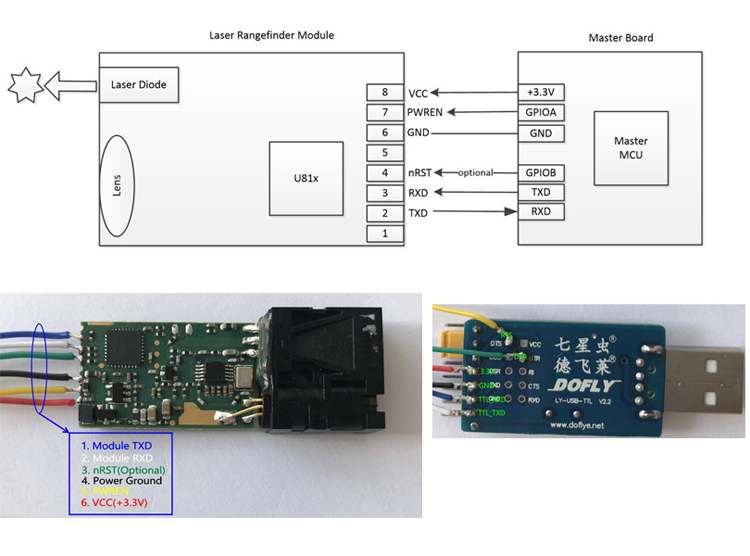U.S. adopts new technology to clone two cats successfully[Photos]
New product of U85 micro laser distance sensors use highly focused class 2 laser to detect objects or measure distances, and can return a measured value via varieties intface( serial, usb, rs232, rs485, bluetooth etc.). The electronic distance sensor is a very small Laser Distance Sensor, but high resolution up to 1mm and long distance measuring sensor - teachable measuring range of up to 30m. Extremely accurate distance sensing sensors, errors down to ± 1mm. And the mini sensors and measurements support continuous measurement function, great for compact solutions(eg: robots) with the smallest Laser Distance Sensor of the world!

Parameters of U85:
Accuracy
±1 mm (0.04 inch)
Measuring Unit
mm
Measuring Range (without Reflection)
0.03-20m/0.03-30m
Measuring Time
0.1~3 seconds
Laser Class
Class II
Laser Type
620nm-690nm, <1mW
Size
41*17*7mm (±1 mm)
Weight
About 4g
Voltage
DC2.0~3V
Electrical Level
TTL/CMOS
Certifications
CTNT, FDA, CE, FCC, RoHS, etc.
Operating Temperature
0-40 ℃ (32-104 ℉ )
Storage Temperature
-25~60 ℃ (-13~140 ℉)
Mini Laser Distance Sensor,Optical Laser Distance Sensor,Smallest Laser Range Sonsor,Laser Measuring Sensor
Chengdu JRT Meter Technology Co., Ltd , https://www.jrt-measure.com
